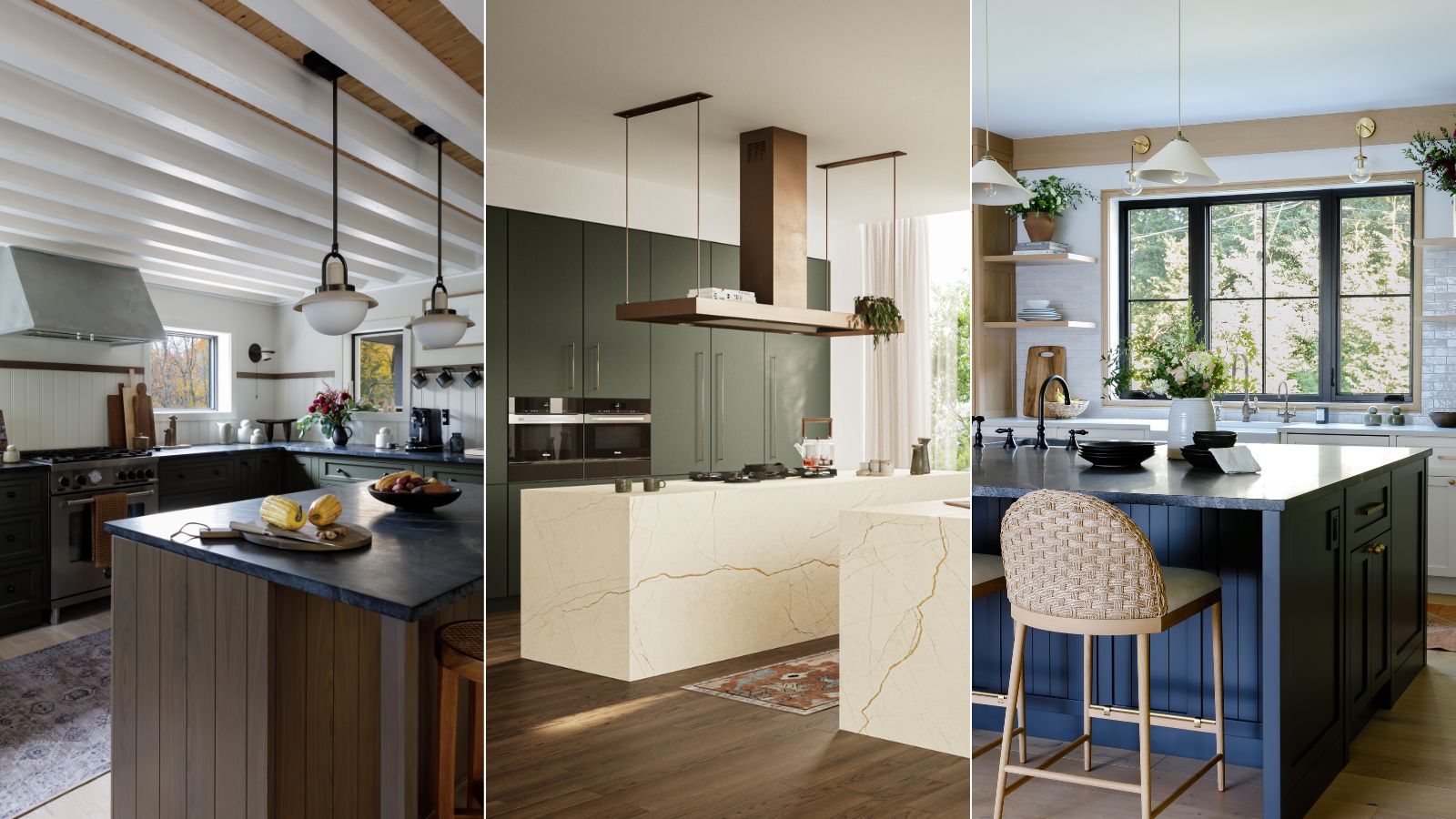
When you think of a luxurious kitchen, beautifully-veined marble countertops probably come to mind. It's become the staple of elevated design, but it's not always the most practical or affordable choice.
Countertop ideas are an important part of designing your kitchen scheme – not only are they used across a large expanse of your space, but they are key to creating your desired aesthetic. So, if you want the style that marble countertops boast without the maintenance and expense, what's the best alternative?
We've turned to kitchen experts to discover the best marble countertop alternatives that offer all the visual benefits of this beloved natural stone but feature more robust, enduring characteristics.
What's the best alternative to marble countertops?
There's no denying the aesthetic appeal of marble countertops, but sometimes they're just not the most practical choice. There are plenty of other countertop materials that are just as beautiful and luxurious as marble, but prove more durable and manageable. A win-win!
1. Granite
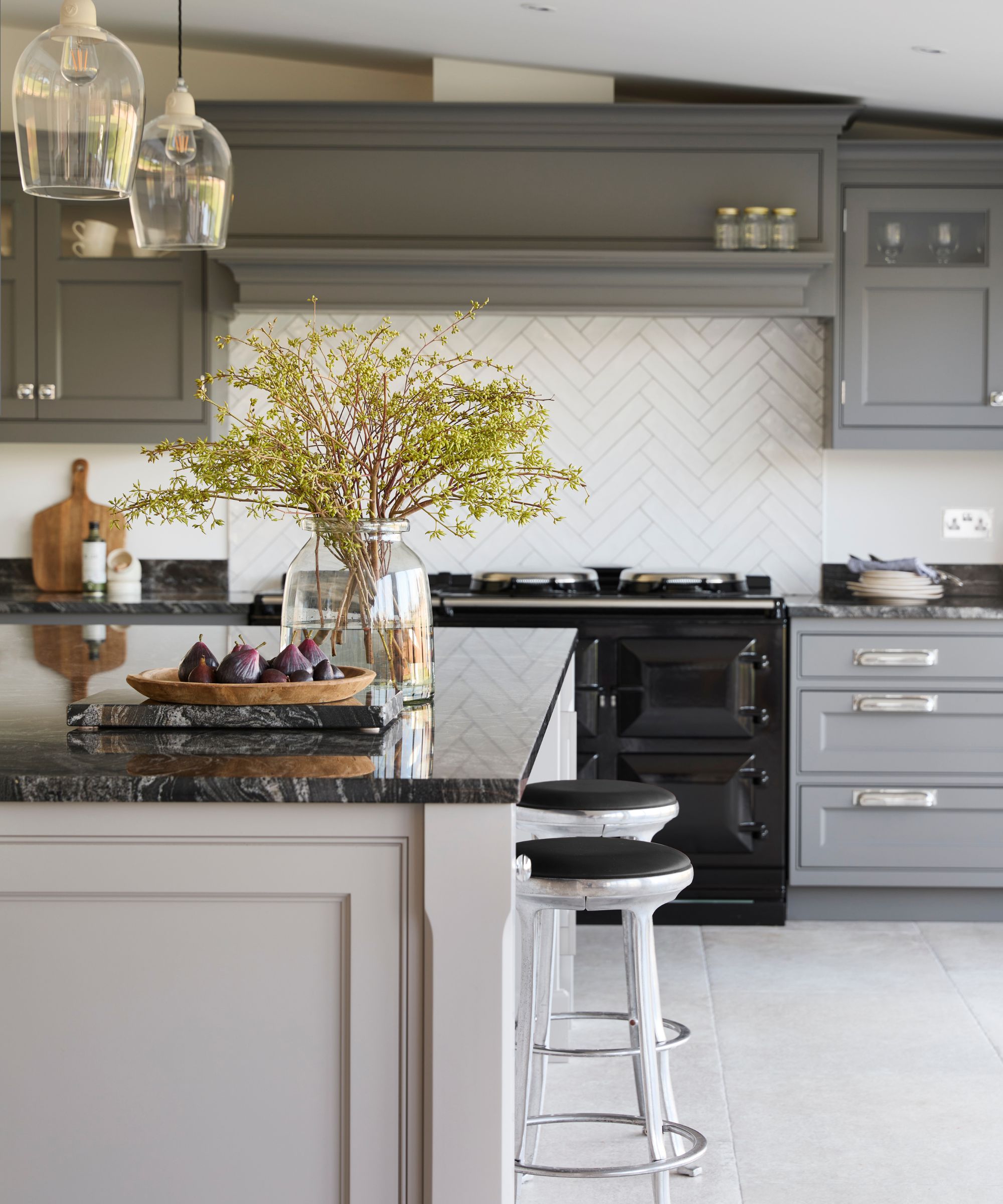
If you want to go down the natural route, some alternative stones can add plenty to your scheme. 'For a natural stone option that is very durable, granite is tried and true,' says interior designer Becky Shea.
Granite countertops still offer that tactile, visually interesting feature, but they're far more resilient and hardwearing than a lot of marble, which is why they are one of the most popular alternative materials.
'Formed naturally in the ground, there are no two pieces the same so you’re guaranteed a unique look. Versatile and durable, it can be cut into any shape and is scratch, heat, and stain resistant – but will need sealing. Colors can be limited, but if you’re after a high-end glossy finish, granite is a great alternative to marble,' says kitchen designer Richard Davonport.
While granite is still an expensive material, it is more affordable than marble and has plenty of benefits that you don't get with marble. Its stain and scratch-resistant properties make it an ideal choice for a kitchen and requires far less maintenance than marble. An ideal natural alternative.
2. Porcelain
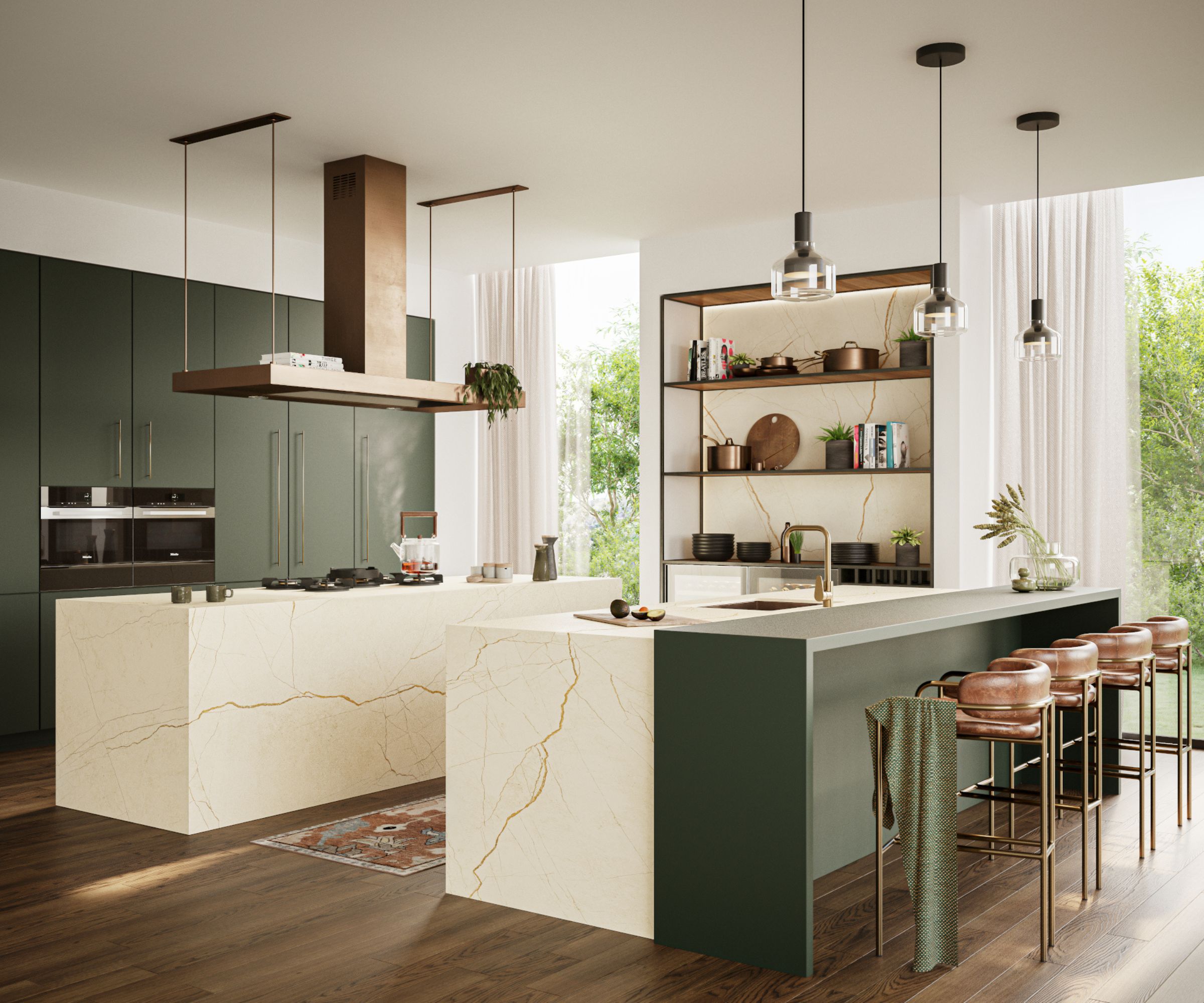
Porcelain is often associated with decor, but it's a great material to use for kitchen countertops. It's incredibly durable and doesn't discolor with age, which makes it a truly desirable choice. Plus, if you want to extend your kitchen outside, porcelain can withstand the elements.
'Porcelain is another quality option that adds heat resistance and a level of protection from the sun's effects on its coloration over time. If you're planning an outdoor kitchen or table, consider using porcelain,' says Becky.
A synthetic option, porcelain has been growing in popularity due to its understated beauty, quality, and durability – characteristics that are key for countertops that experience regular wear and tear.
'Porcelain outperforms natural stone alternatives such as marble and granite. Whether you’re after a bolder, dramatic style with a darker hue or looking to create a light, natural atmosphere with something softer, then this material can offer just that,' says Jonathan Stanley, of Caesarstone.
'Beyond aesthetics, porcelain is highly resistant to heat, scratches, and stains, whilst also being non-porous and simple to clean. Because of its high resistance to heat, sunlight, UV, and extreme weather conditions, porcelain is also suitable for outdoor use, for those looking to recreate a stylish and practical look in their outdoor kitchen,' he adds, agreeing with Becky.
3. Quartz
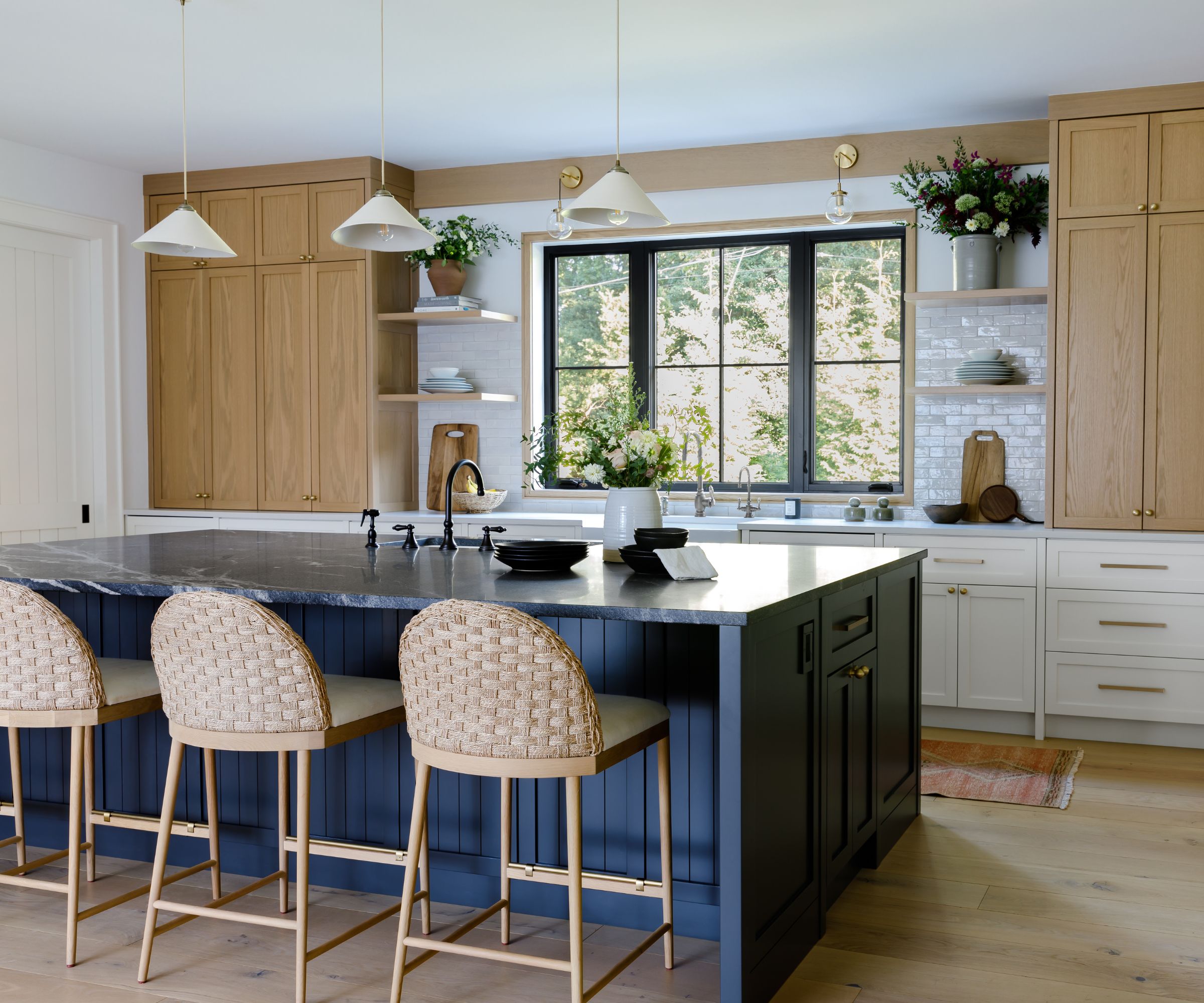
'Marble is a wonderful statement material to use within a kitchen, whether just for the worktop or used as a stunning splashback as well. Marble does need to be carefully looked after – it will mark, it will age gracefully, but not everyone is happy with the change the marble will undertake, so a great alternative is to use a striking composite material such as high-quality quartz,' says Jayne Everett, creative designer at Naked Kitchens.
Quartz countertops have a great balance of aesthetics and durability, making them ideal for a practical yet elevated kitchen scheme. While a lot of these alternative materials offer these practical benefits, some designers feel it has an edge over the rest. 'Quartz is especially strong and non-porous, making it a great choice for kitchens or bathrooms given it is resistant to staining, scratches, and even bacteria,' says Becky.
Jonathan also highlights the fact that quartz is one of the easiest countertop materials to look after and keep looking pristine. 'Quartz requires virtually no maintenance. Engineered stone has overtaken natural stone as the most desirable countertop material due to the vast array of beautiful designs available, along with its inherent durability and non-porousness,' he explains.
4. Timber
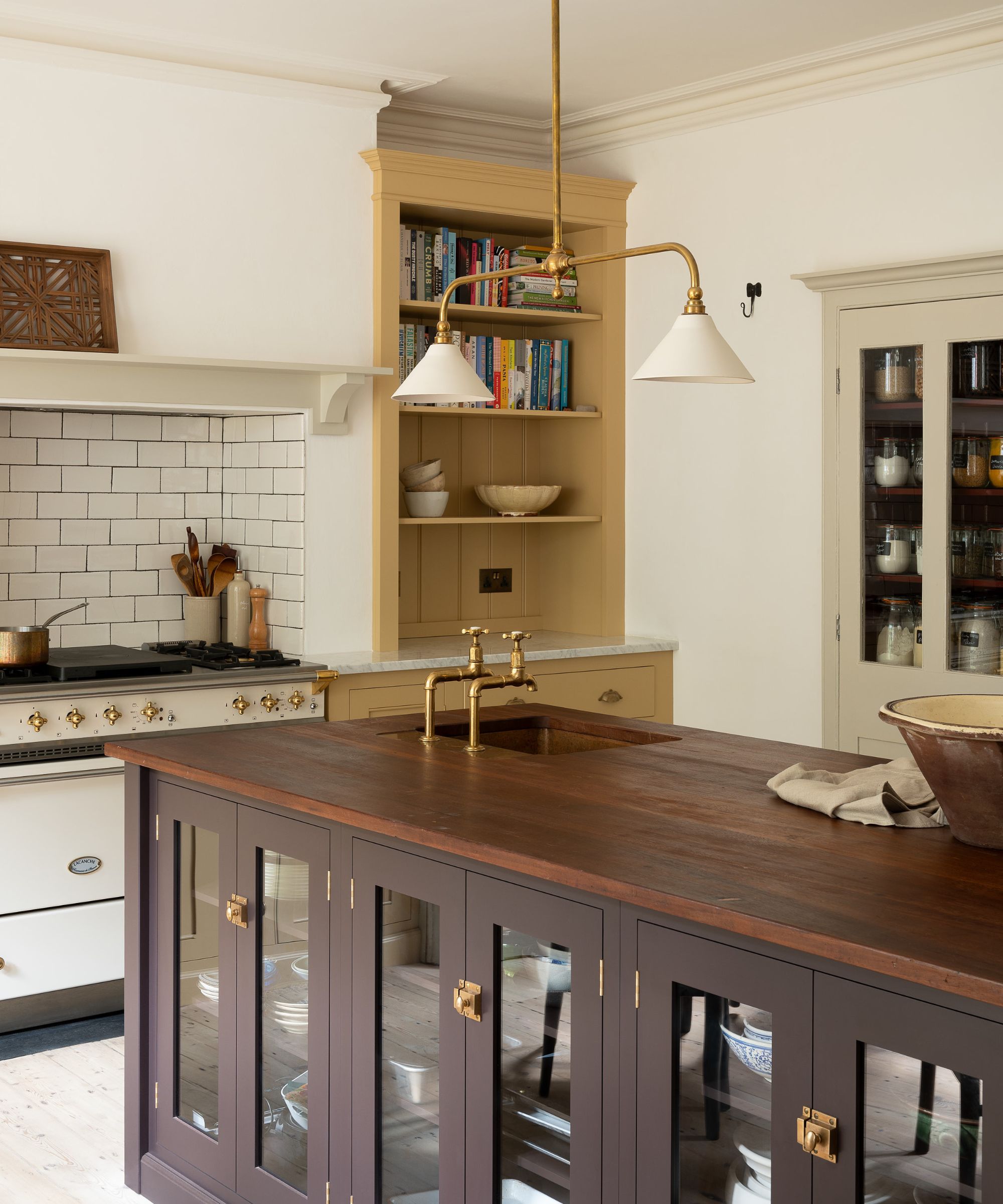
If you aren't concerned with creating the same look as marble but want to introduce countertops with the same practical qualities, timber is an enduring and timeless choice. It still ticks the natural box, but it has a warmer, more simple look.
'Timber countertops are most certainly having a resurgence and look fabulous either as a countertop throughout or combined with marble, quartz, or a similar countertop,' says Jayne.
Part of the appeal of timber countertops, aside from the fact that they look great and last a long time, is that they're super versatile and pair well with different materials and finishes. This means they can fit into plenty of interior design styles, whether your kitchen leans more rustic, traditional, or contemporary.
They can also be a great accompaniment to marble countertops if you don't want to ditch them completely. 'An end grain timber can be a great prep area within the kitchen to ensure all the messy and potential marble staining work is carried out on the much more hardwearing and forgiving timber top,' Jayne adds.
5. Soapstone
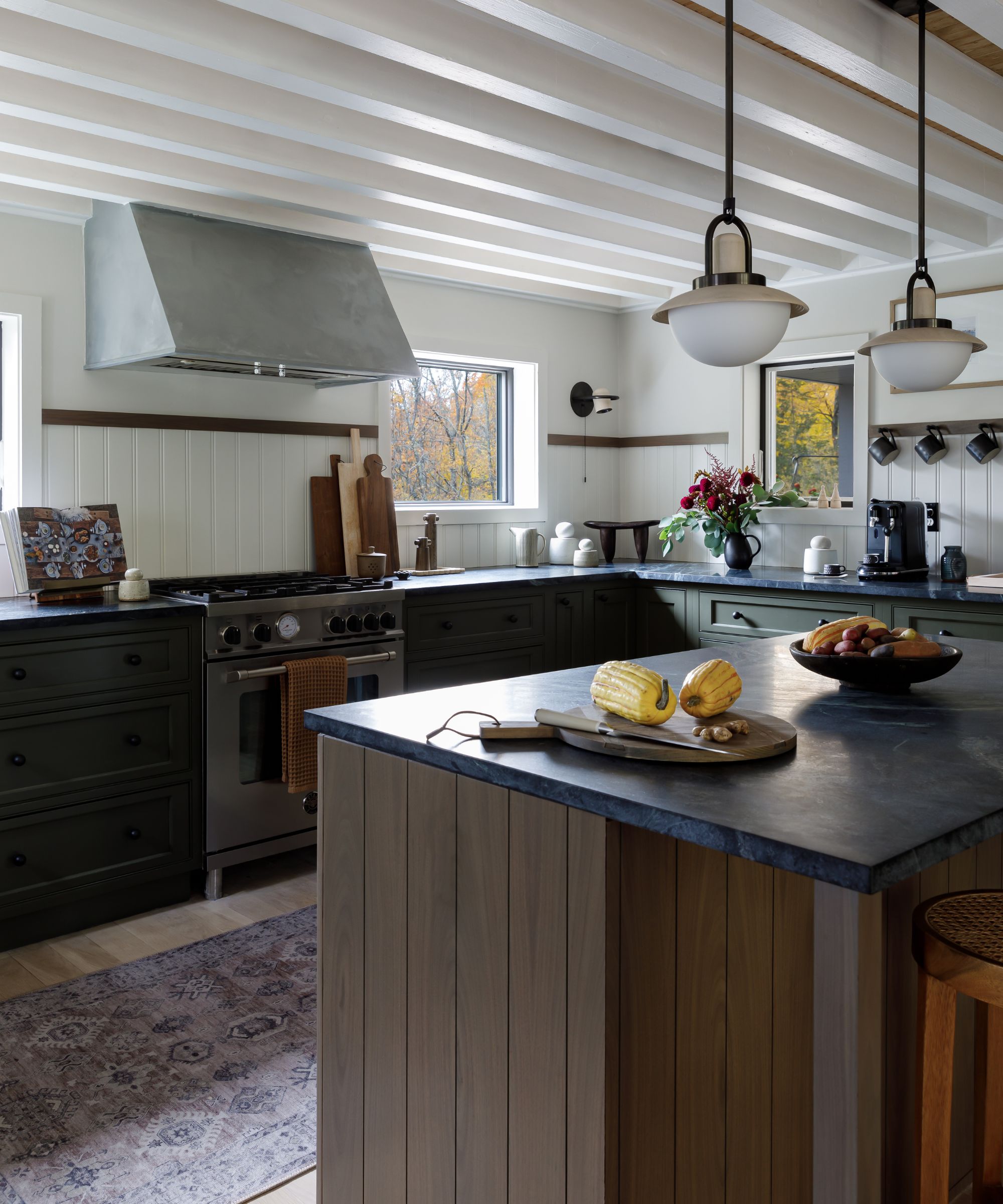
Another natural material that offers a similar appeal to marble is soapstone. It's stain-resistant, which makes it good for use in the kitchen, and it's also incredibly visually striking.
'My last natural go-to alternative is soapstone. There are beautiful options and it's pretty durable. You just want to avoid scratching it and give it a sealer coat every year or so,' says Becky.
While soapstone countertops look incredible in schemes, they are a more expensive option than granite or porcelain. As such, Becky recommends sourcing a sample piece to see if the chosen stone works in your scheme.
'No matter which material you opt for, always request samples of the specific slab you are considering so that you can review it against your room's other elements and be certain of your choice,' she adds.
Marble countertops are surely beautiful, but if you're not keen on the maintenance they require, these alternative materials will add just as much appeal to your kitchen scheme. Which one you choose will depend on the style of your kitchen – just make sure to test out some samples before making your final decision.







